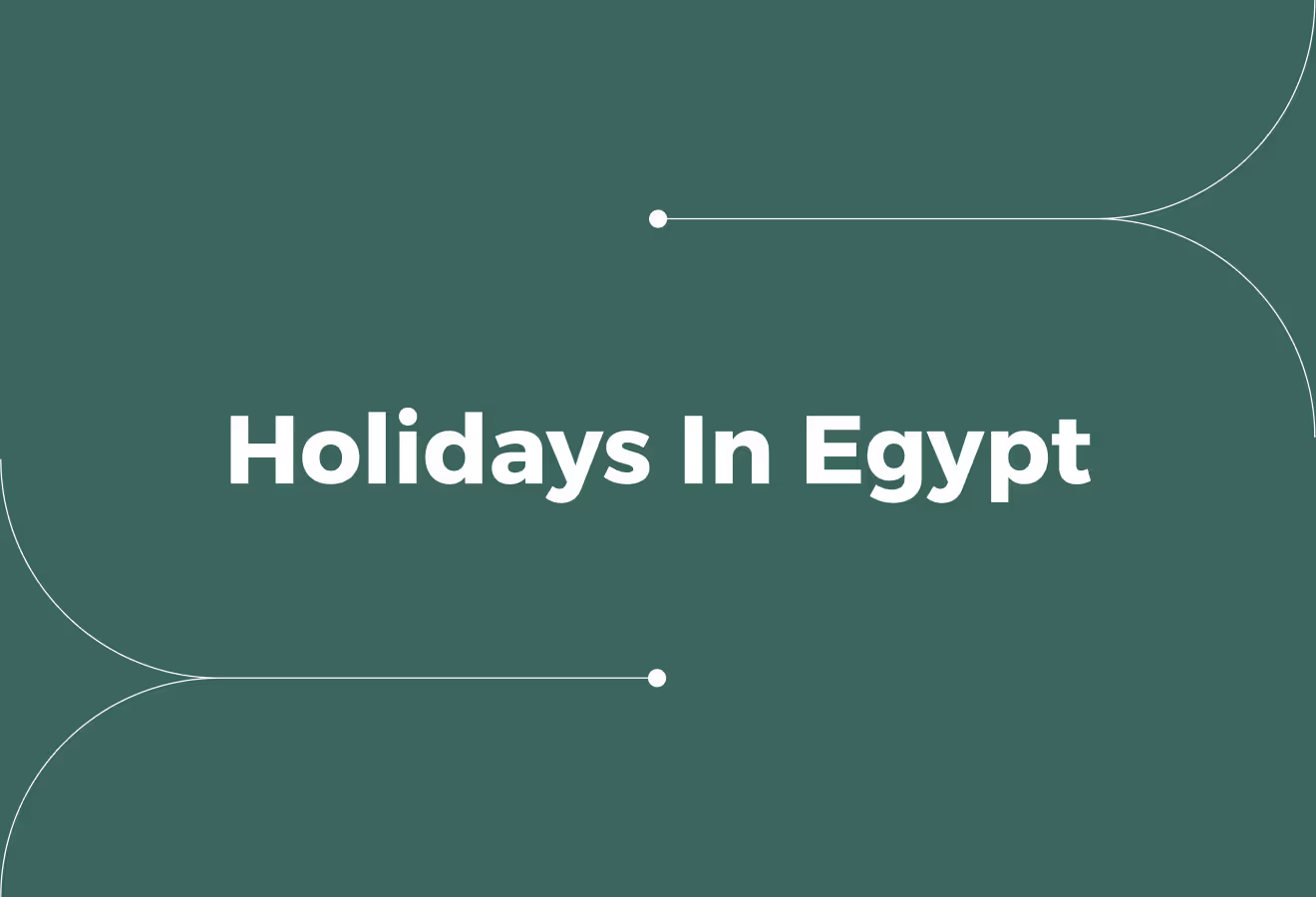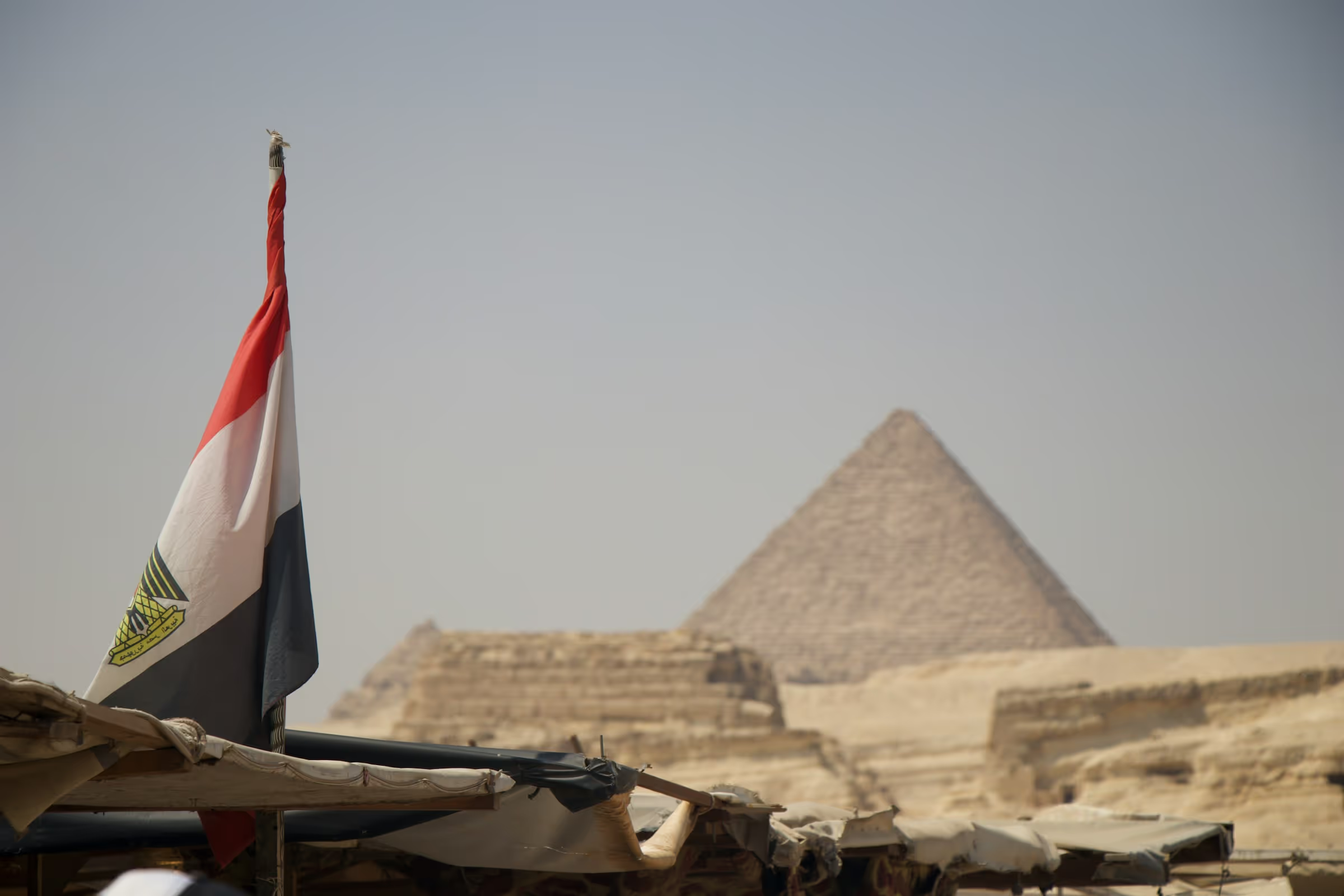Official Public Holidays In Egypt (What Employers Need To Know)

Official Public Holidays In Egypt (What Employers Need To Know)
When operating in Egypt, it is important to understand both the cultural context and the country’s public holiday calendar. For employers and businesses, it is just as important to understand the country’s public holiday calendar. Like many countries, Egypt observes both official and religious public holidays, some of which follow a lunar calendar and are subject to annual changes. This article outlines Egypt’s public holidays and what employers should be aware of when planning schedules, operations, or employee leave.
Cercli’s global HR system supports employers in managing local calendars and navigating public holiday requirements in Egypt and beyond.
Official Public Holidays in Egypt

Egypt’s public holidays reflect the country’s rich religious traditions, diverse social customs, and significant milestones in its modern history. These holidays are observed nationwide, though the exact dates for Islamic celebrations vary each year as they follow the lunar Hijri calendar. If a holiday falls on a weekend, the government may decide to shift it to a weekday or forego it altogether. This is usually confirmed nearer the time.
Tuesday, 7 January – Coptic Christmas Day
Observed mainly by Egypt’s Coptic Orthodox Christian community, this day commemorates the birth of Jesus Christ. It is a public holiday across Egypt, typically observed with:
- Family gatherings
- Prayers
- Church services
Saturday, 25 January – Revolution and National Police Day
This day recognises the Egyptian police and commemorates the anniversary of the 2011 revolution, a significant event in recent history. It is a national holiday observed by all sectors of society.
Monday, 21 April – Sham El-Nessim
Sham El-Nessim, rooted in ancient Egyptian traditions, marks the beginning of spring and falls on the Monday after Coptic Easter. Egyptians often celebrate with picnics and traditional foods such as salted fish and green onions.
Thursday, 24 April – Sinai Liberation Day
Commemorates the full restoration of Egyptian sovereignty over the Sinai Peninsula on 25 April 1982, following the Egypt-Israel Peace Treaty. It is a day of national remembrance and is widely recognised as a key date in Egypt’s modern history.
Thursday, 1 May – Labour Day
Labour Day, observed in Egypt and worldwide, acknowledges the contributions and rights of workers across all sectors. Various official and community-led events mark it.
Monday, 30 June – Revolution Day
This day marks the anniversary of the 2013 demonstrations that led to a change in political leadership. It is observed as a national day of civic reflection.
Wednesday, 23 July – Revolution Day (1952)
This date commemorates the 1952 revolution led by the Free Officers Movement, which brought an end to the monarchy and led to the formation of the modern republic. It is a national public holiday.
Monday, 6 October – Armed Forces Day
Observed in recognition of the Egyptian military and the start of the 1973 October War, this day is marked by official ceremonies and public observances.
Islamic Holidays (Dates Vary Annually)
These holidays follow the Islamic lunar calendar and are confirmed by religious authorities closer to the time.
While the exact dates shift each year, they are widely observed across Egypt:
- Eid Al-Fitr (3–4 days): Celebrated at the end of Ramadan. A time for communal prayers, charitable giving, and shared meals.
- Arafat Day: Observed before Eid Al-Adha and significant for Muslims undertaking the Hajj pilgrimage.
- Eid Al-Adha (4–5 days): Known as the “Festival of Sacrifice.” Marked by prayers, charity, and meals with family and friends.
- Islamic New Year: The first day of Muharram, observed with reflection and prayer.
- Mawlid Al-Nabi (Prophet Muhammad’s Birthday): Commemorated with:
- Religious gatherings
- Storytelling
- Traditional sweets
These holidays provide regular breaks throughout the year, allowing Egyptians to observe religious practices, national events, and cultural customs. Whether managing business operations or visiting Egypt, awareness of these dates is essential for effective planning and respectful engagement.
Related Reading
Observing Public Holidays in Egypt

Egypt's Public Holidays: What You Should Know
Egypt observes public holidays that reflect its religious, cultural, and national heritage. These holidays are often marked by religious observance, civic commemoration, and family gatherings. For employers and HR teams, understanding how these holidays are observed is key to maintaining compliance and ensuring smooth operations.
Egypt's Weekend and Shifting Holidays
Egypt’s weekend falls on Friday and Saturday. Since 2020, the government has commonly shifted mid-week public holidays to Thursdays, irrespective of their calendar date. Holidays may also be moved to Sundays when necessary for operational or national planning purposes. These changes are usually announced in advance by the authorities.
Employees' Rights on Public Holidays in Egypt
Under Labour Law No. 12 of 2003, employees are entitled to paid leave on all official public holidays. If employees are required to work on a public holiday, they must be compensated at three times their standard daily wage. This ensures observance of public holidays while maintaining flexibility for essential operations.
Why HR Needs to Prepare for Public Holidays in Egypt
For HR professionals, a clear understanding of Egypt’s public holiday schedule is essential for several reasons:
- Legal Compliance: Ensures adherence to statutory obligations regarding leave and compensation.
- Workforce Planning: Supports staff scheduling, primarily in organisations operating across multiple regions or time zones.
- Internal Communication: Timely communication about holiday dates, entitlements, and payroll adjustments helps avoid misunderstandings.
Proactively managing public holidays helps maintain productivity and supports staff well-being. It also contributes to a more organised and efficient working environment.
Public Holiday Pay in Egypt: Key Considerations
.avif)
Under Labour Law No. 12 of 2003, employees in Egypt are entitled to paid leave on official public holidays. These holidays, both religious and civil, are recognised by the state and observed nationwide.
Certain sectors may require employees to work on public holidays due to continuous operations, such as:
- Healthcare
- Hospitality
- Logistics
In such cases, the law outlines the required method of compensation.
Public Holiday Pay Calculation
If an employee works on an official public holiday, they are entitled to triple pay (300%) of their regular daily wage. This includes:
- 100% base pay (standard daily wage)
- 200% additional pay for working on a public holiday
Example: If an employee’s regular daily wage is EGP 400, their public holiday pay would be:
EGP 400 (regular pay) + EGP 800 (200% premium) = EGP 1,200
This pay structure reflects the legal requirement to compensate employees for working on public holidays, while also acknowledging the importance of these dates. It allows organisations to continue operations when needed, in accordance with labour law.
HR departments should document public holiday pay procedures, communicate expectations clearly and promptly, and ensure that payroll systems apply the correct rates. This supports legal compliance and helps maintain clarity within the organisation.
An HR Platform Built Around the Needs of MENA Employers
Cercli supports HR operations in line with the UAE’s commitment to efficient, business-friendly practices. Cercli provides a platform tailored for MENA businesses, unifying workforce management needs in a single system. Manage your team, whether local or international, with the ability to process payments in more than 150 countries. The platform supports multi-currency payroll, leave tracking, employee onboarding, and local compliance requirements, all tailored to the specific requirements of the MENA region.
Whether you're managing a growing team of 25 or coordinating 500+ employees across multiple countries, Cercli provides the localised expertise and streamlined processes MENA businesses require to support growth and manage remote teams effectively. Explore an HR platform designed to support the way you do business in the Middle East. Arrange a demonstration today to speak with our team about our international HR system.
Related Reading
The Ministry of Manpower’s Role in Enforcing Employee Rights

The Ministry of Manpower plays a central role in upholding employee rights in Egypt. It is particularly responsible for ensuring employees’ rights are upheld during public holidays. The Ministry enforces public holiday entitlements across both the public and private sectors.
This role is crucial in promoting legal compliance, protecting employee rights, and upholding fair workplace standards throughout Egypt.
Protecting Employees During Public Holidays
Public holiday provisions protect employees’ right to rest and recognise national and religious observances. Under Labour Law No. 12 of 2003, employees are entitled to paid leave on official public holidays.
If operational requirements necessitate work on a public holiday, employees must receive 300% of their standard daily wage. This ensures fair compensation for work carried out during official rest days, reflecting respect for both individual rights and cultural practices.
Resolving Employee Disputes in Egypt
If an employee believes they were underpaid or not compensated for holiday work, they may raise a dispute. The Ministry provides an official process for lodging complaints and resolving employment-related disputes. It has the authority to investigate, facilitate resolution, and enforce corrective measures where necessary. Through inspections, complaint resolution, and employer guidance, the Ministry ensures that employers remain compliant with public holiday regulations.
Book a Demo to Speak with Our Team about Our Global HR System
Cercli supports HR operations in line with the UAE’s commitment to efficient, business-friendly practices. Cercli provides a platform tailored for MENA businesses, unifying workforce management needs in a single system. Manage your team, whether local or international, with the ability to process payments in more than 150 countries. The platform supports multi-currency payroll, leave tracking, employee onboarding, and local compliance requirements, all tailored to the specific requirements of the MENA region.
Whether you're managing a growing team of 25 or coordinating 500+ employees across multiple countries, Cercli provides the localised expertise and streamlined processes MENA businesses require to support growth and manage remote teams effectively. Explore an HR platform designed to support the way you do business in the Middle East. Arrange a demonstration today to speak with our team about our global HR system.










